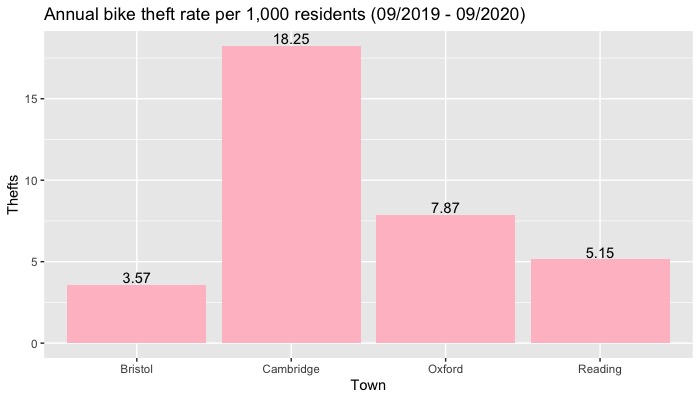Asylum Welcome, an Oxford-based charity for refugees and asylum seekers, is planning to take local councillors and community leaders on an alternative walking tour of Oxford on Friday 18th June. The tour is one of a series of events in Oxford marking Refugee Week, a UK-wide celebration of the contributions, creativity, and resilience of refugees, held from 14th June until 2021 World Refugee Day on 20th June.
Volunteers at Asylum Welcome with refugee status will lead the guided walk, giving community and local political leaders a glimpse into ‘their Oxford’ by describing the contemporary experience and challenges of a refugee arriving in Oxford. They will also share about organisations and locations that are vital for people building new lives in Oxfordshire.
Razan, a tour guide, hopes to use the walk to broaden the discussion about refugee status. “Granting a refugee status is the least we can give to someone who has fled war, fear, torture, and suppression,” she said, going on to state that “This is a human matter not a political one, and it should be discussed and defended all around the earth not only in parliaments.”
The walk is held in line with the main theme of Refugee Week, ‘We Cannot Walk Alone’, which is inspired by Martin Luther King Jr’s ‘I Have a Dream’ speech. The theme aims to “celebrate how families and communities have come together” over the last year and to remind the public how they can support one another to ‘create inclusive and resilient communities”.
The activities of this year’s Refugee Week take place against the backdrop of potential enormous change in the landscape for refugees in the UK, as the Home Office plans a significant overhaul of its immigration and asylum systems. Asylum Welcome has challenged the Home Office’s proposed New Plan for Immigration since it was put forward in March 2021. The organisation is against the plan’s punitive measures against ‘illegal immigration’ as the UK government proposes for the first time ever to brand an asylum-seeker ‘legal’ or ‘illegal’ based on their route of arrival. “With the Walk, we want to create a tangible link between national policy and local constituents,” said Dr Hari Reed, Policy and Advocacy Coordinator at Asylum Welcome.
Supported by a small core staff and more than 120 volunteers, Asylum Welcome serves over 1,700 clients per year. A host of other events during Refugee Week will involve the organisation. At Gloucester Green Market on Wednesday 16th June, Asylum Welcome held a fundraiser and lent its support to the launch of a photo exhibition at the Old Fire Station, a collaboration between fellow refugee charity Refugee Resource and photographer Phillipa James. The exhibition, also titled ‘We Cannot Walk Alone’, features portraits of refugee women and explores themes of trauma, the inner and outer self, and societal expectations.
Asylum Welcome staff and volunteers have also been carrying a giant orange heart around Oxford during the week to collect messages of support and solidarity with asylum seekers and refugees, as well as distributing orange heart stickers. The orange heart, a symbol of compassion and support for refugees, is the logo for Together with Refugees, a coalition of more than 200 national and local organisations embracing these principles which was formed in May 2021.
Nicky Barnetson, Education and Employment Coordinator at Asylum Welcome, explains that the design takes inspiration from both the Refugee Flag, conceived by Syrian artist and refugee Yara Said, and the colour of lifejackets. “Oxford has a heart, it’s orange, and it’s growing”, Barnetson describes. “We want to tell people, ‘We want you here.'” The giant heart made an appearance at Gloucester Green Market on Wednesday and will be displayed at Headington Market on Saturday 19th June.
Other events during Refugee Week will take diverse forms, including a music evening, a paper puppet collage workshop, presentations, and talks.
At the University of Oxford, Mansfield College and Somerville College will also host the Oxford’s Colleges of Sanctuary Annual Event on Thursday 17th June, a conversation between Dr Reverend Inderjit Bhogal OBE, founder of the Cities of Sanctuary Movement UK, and Syrian educator and campaigner Afraa Hashem. Both colleges were recognised as University-Colleges of Sanctuary by City of Sanctuary UK earlier this year, the first colleges at the University to be so recognised.
On the same day, Sanctuary Hosting, a charity which matches homes with spare rooms to homeless asylum seekers, refugees and vulnerable migrants, will host a book presentation with Bharti Dhir, author of memoir Worth, who will share excerpts from her book and answer questions from the audience. The memoir is about her journey growing up as a biracial female child and refugee, nurturing self-worth, and overcoming abandonment, discrimination, and adversity.
A list of Refugee Week events hosted by organisations in Oxford can be found here.
Image Credit: Asylum Welcome



